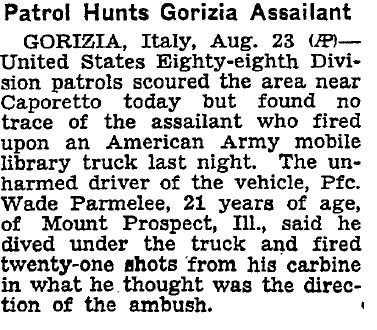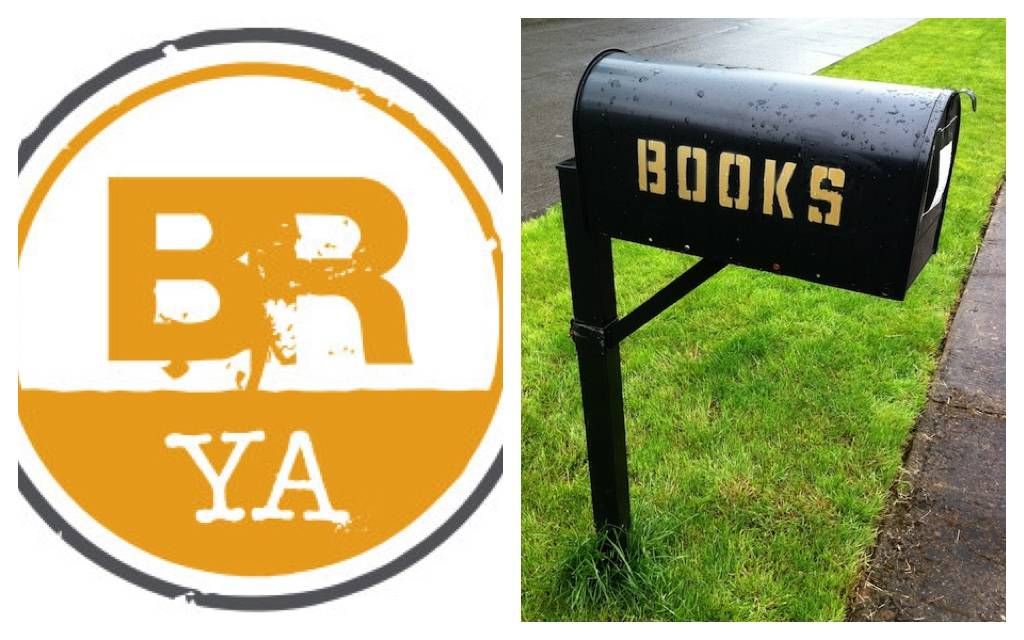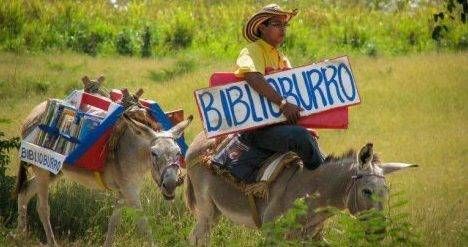
Finding Libraries in Unexpected Places
We usually think about libraries as staid and steady buildings, safely immobile on our city streets. Like, say, this rather pretty one:
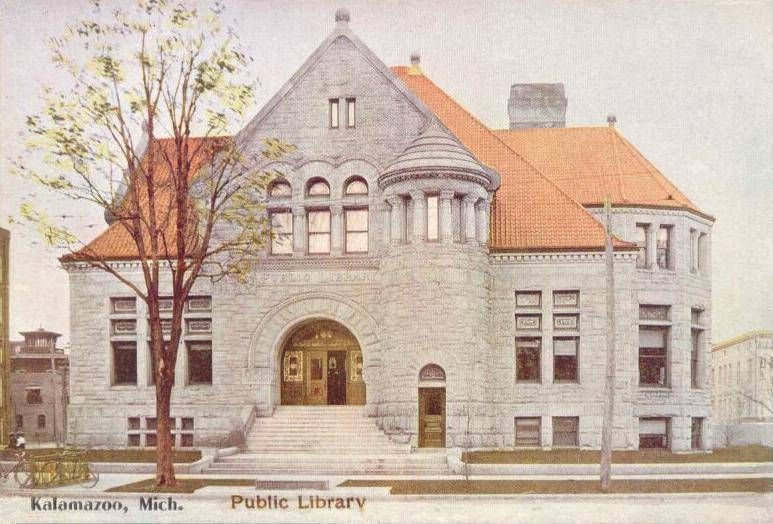
The Kalamazoo Public Library, from a 1908 postcard. Photo from Wikimedia Commons.
But they don’t always stay there. One of the most fascinating things about bookmobiles, for example, is that they take libraries out on the road. And they can end up in some pretty strange places—like, say, the banks of a Louisiana bayou:
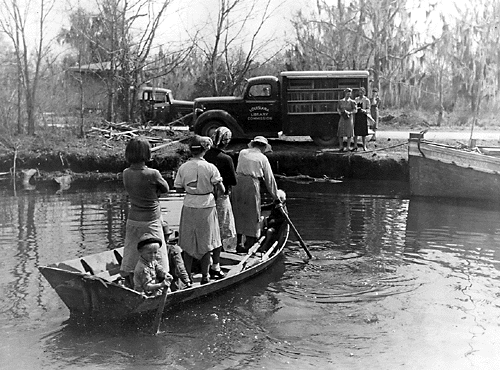
A Works Progress Administration Bookmobile visits Bayou De Large, Louisiana. Photo from the New Deal Network.
Or under fire on the Italian countryside:
But bookmobiles aren’t the only libraries in unexpected places. Here are some other ways that librarians have taken books out into the world.
ON HORSEBACK
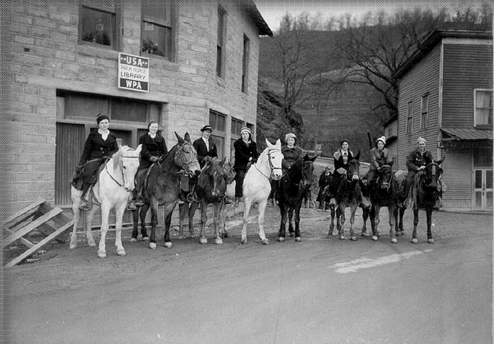
Pack horse librarians pose in Hindman, Kentucky. From the University of Kentucky’s Goodman-Paxton Photographic Collection [pdf].
IN SUPERMARKETS
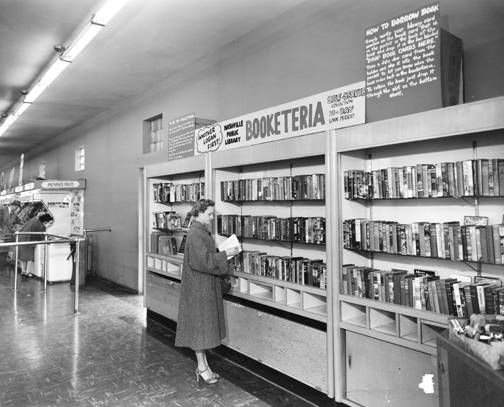
A booketeria in a Nashville supermarket. Photo from the Nashville Public Library.
In the first few decades after the end of the Second World War, in cities across the U.S.—like Nashville; Evansville, Indiana; Augusta, Georgia; Portland, Oregon; Freeport, Illinois; Wichita, Kansas; Lincoln, Nebraska; and Troy, Ohio—librarians opened small, mostly self-service library branches in supermarkets. These mini-libraries, often called “booketerias,” offered patrons convenient access to books. But whether or not they were good for libraries, and for book culture more generally, remains an open question.
IN VENDING MACHINES
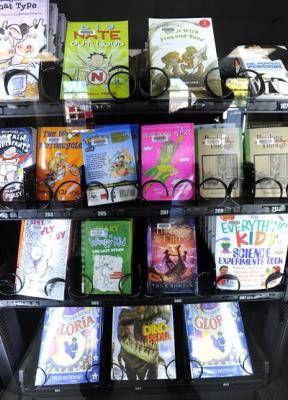
A vending machine library at a Bay Area school. Photo originally from Inside Bay Area.
In a twenty-first-century take on the booketeria, some school libraries and public libraries are adapting the vending machine model to attract attention and increase circulation. Personally, I find it a bit worrying—as with the booketeria, it seems to reinforce the troubling idea that you can have a library without librarians and that library books are like any other consumer products—but I suppose, in its way, it is a clever idea. Even cleverer is the Biblio-Mat, which isn’t a library but does manage to combine the serendipity of library-stacks browsing with the excitement of those mystery-prize bags you get at the dollar store. (I used to love those things, even though I knew they were just filled with useless plastic crap.)
AT AN AIRPORT
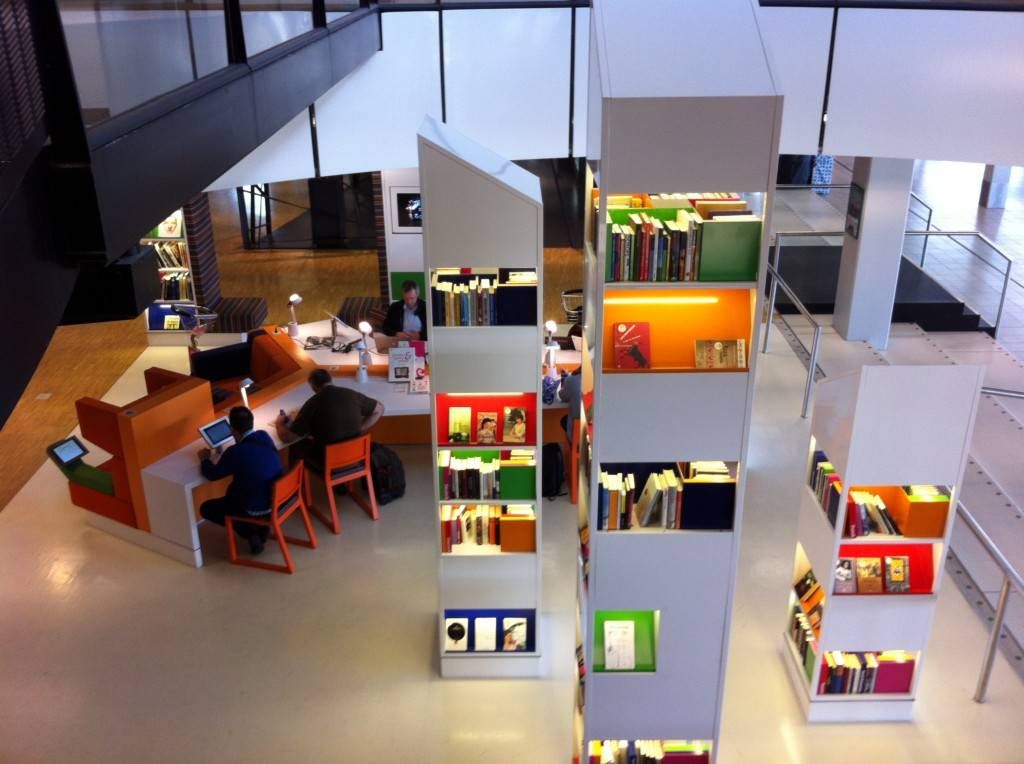
Library at Amsterdam Schiphol Airport. Photo from Theatregrad.
For the past several years, at Amsterdam Airport Schiphol, a library has helped entertain and enlighten passengers stuck in the frequently miserable hellscape that is contemporary air travel. You can’t check books out at this library, but travelers are welcome to browse the books and to carry one off to read elsewhere in the airport. (There are also iPads available for use within the library space.) Designed to highlight Dutch culture at this international airport, while giving bored travelers something to do, the library so far is a success. You can follow one of the librarians on Twitter (@airprtlibrarian).
ON A DONKEY
Here’s a delightful twist on the Pack Horse Library. Since 1990, teacher-turned-mobile-librarian Luis Soriano has brought books to thousands of children in rural Colombia, all from the back of a donkey. The biblioburro, as Soriano calls it, helps poor children have access to more books and thus a chance at a better education. “That’s how a community changes and the child becomes a good citizen and a useful person,” Soriano told CNN. “Literature is how we connect them with the world.” Soriano and his biblioburro are the subject of a children’s book by Monica Brown and John Parra, proceeds from the sale of which go to support Soriano’s work.
IN A WALMART
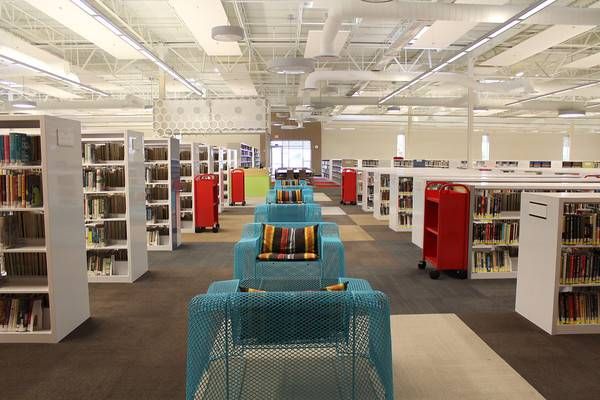
Photo from the McAllen Public Library.
Well, a former Walmart. This library may look like your ordinary, everyday public library, but its location is a bit unusual. In a charming reversal of the booketeria, the McAllen Public Library transformed a former Walmart into a bookish community hub. Early, gleeful, inaccurate reports last summer didn’t always mention that Walmart had simply moved down the street to newer, more spacious digs. So this isn’t, in the end, a library-beats-superstore story. Instead, it’s a great example of a community taking a problem—empty giant buildings aren’t exactly useful or appealing—and turning it into an advantage. You can take a photo tour of the library here.
____________________
Get a box of YA books and bookish goodies in the mail every quarter with our new YA Quarterly Box! Sign up here.



